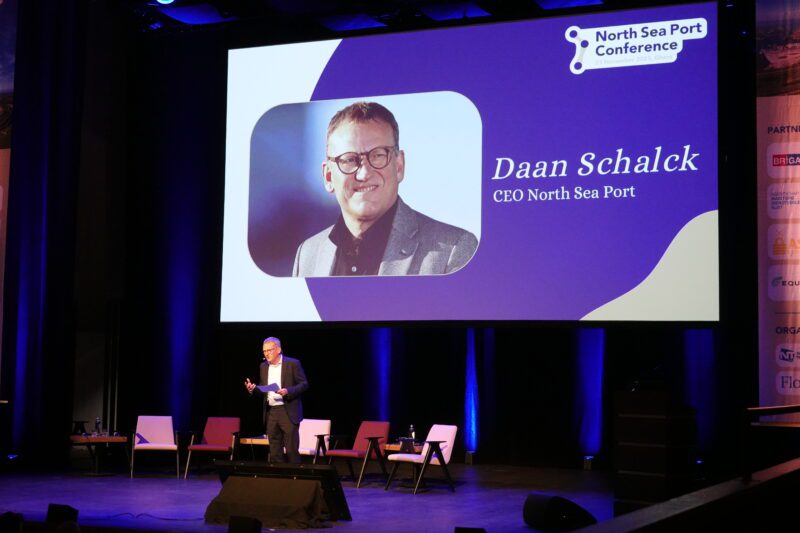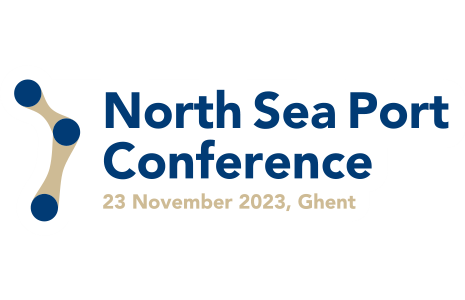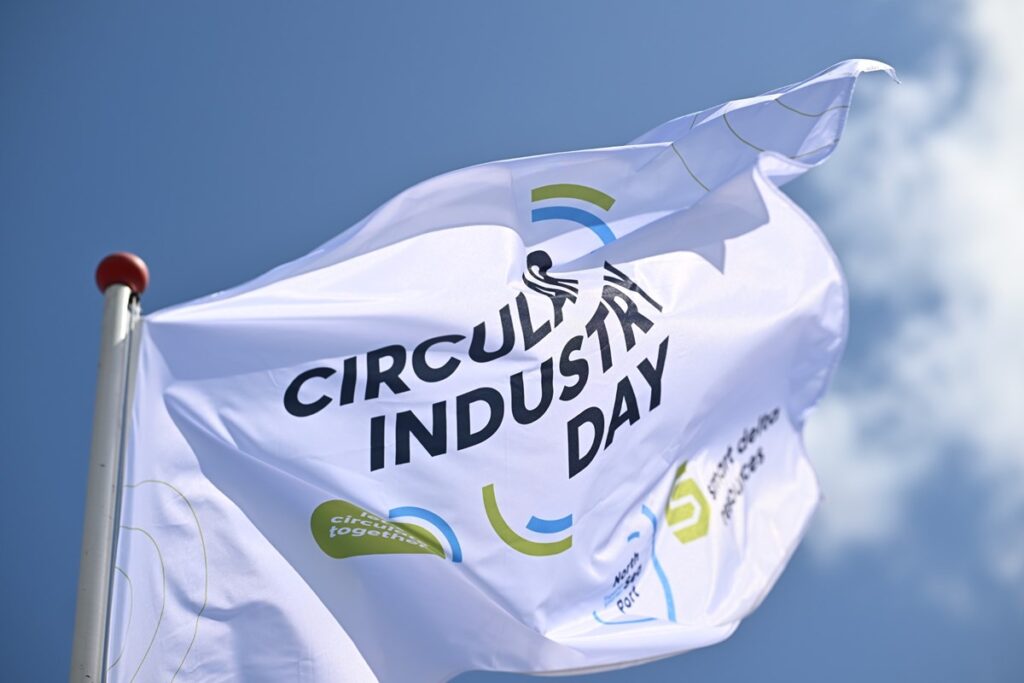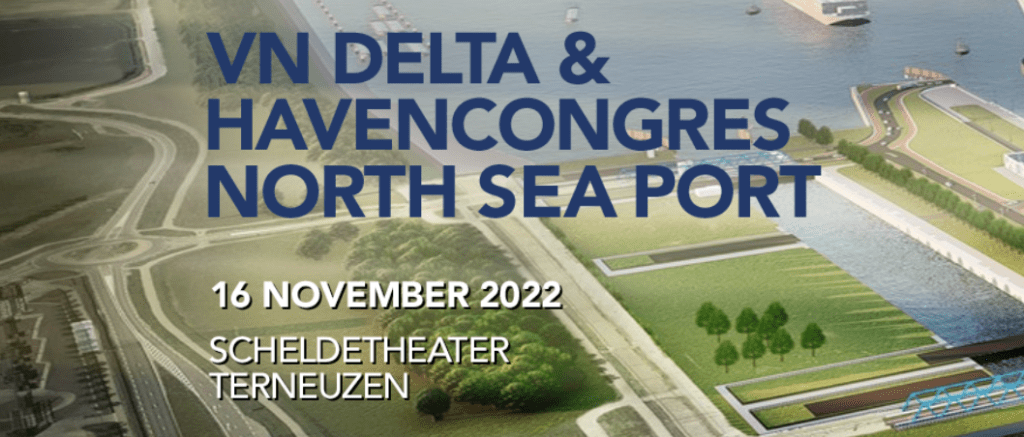The North Sea Port Conference 2023 focused on the challenges for ports and industry in Europe in the context of the so-called ‘permanent crisis’. Much attention was given to the requirements for a successful energy transition and the much needed development of infrastructure.
In his remarks, Daan Schalck, CEO of North Sea Port, emphasised the importance of a common European agenda and strong cooperation in a world where constant geopolitical changes increasingly affect port operations. “We are in a perfect storm,” he said.
Permacrisis
“The war in Ukraine has led to an 11% drop in cargo for the North Sea port,” said keynote speaker Herman Van Rompuy, using an ominous example. The former President of the European Council spoke of a “permacrisis” since the financial crisis that began in 2008, listing all the crises since then: COVID-19, growing tensions between China and the US, war in Ukraine, hyperinflation, war in Gaza. “Uncertainty will remain,” he warned. “Trade will often be hampered by security issues and a loss of trust in a bipolar world. The EU, China and the US will increasingly act as strategically autonomous entities, while continuing to trade intensively. Trust needs to be rebuilt. But the goal of open societies in an open world is clearly under threat”.
“To tackle the energy crisis, we need more EU,” Van Rompuy said. “Scale matters. Size matters. The EU must ensure a level playing field between European countries and also learn from past mistakes”. He cited the example of how the photovoltaic industry was wiped out in Europe.
Van Rompuy pleaded for political courage and, in practice, for more public subsidies to help the climate transition in the context of a world made unstable by security concerns. “The disruptions are many. People in Europe want stability. This is also the hope for more and better cooperation in Europe”.
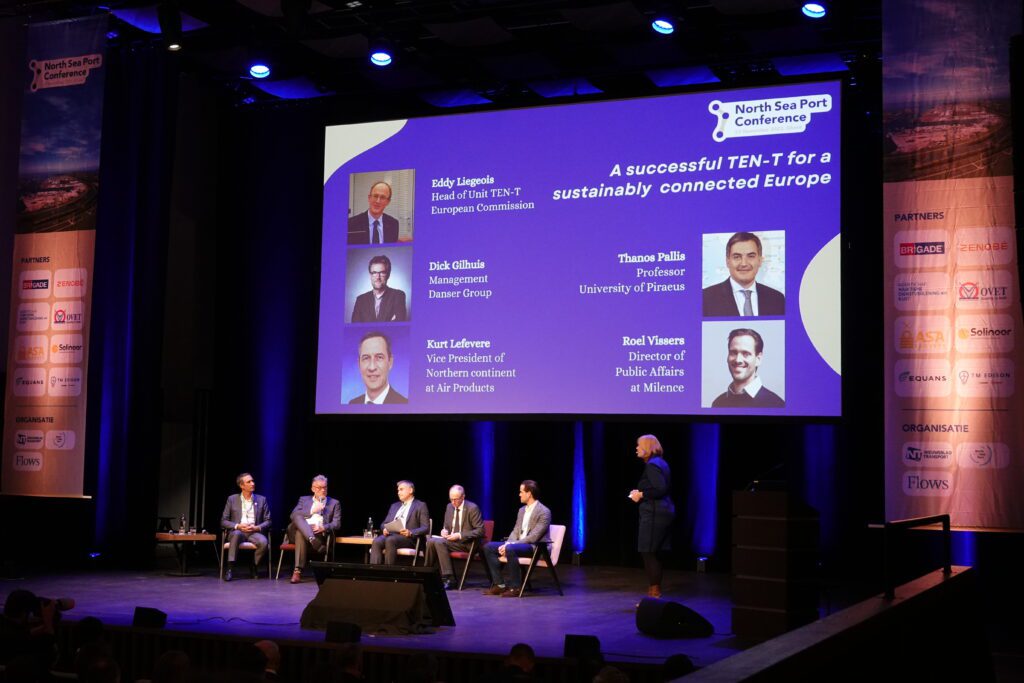
Investment needed in European infrastructure
The next speaker, Eddy Liègeois, Deputy Director European Commission & Head of Unit TEN-T, explained the vision behind the development of TEN-T infrastructure in Europe. Eddy Liègeois highlighted the central role of ports in the face of climate change and in the ongoing fight against congestion on Europe’s roads. “Ports will remain essential and will play a leading role in the decarbonisation of our economies, as well as being energy hubs.” Eddy Liègeois added that significant European funding was available, with €25 billion approved, but that much more was needed, in total roughly €500 billion.
Industry partners joined Eddy Liègeois on stage for a debate on infrastructure and energy transition. Kurt Lefevere (Air Products) praised the TEN-T initiative. “TEN-T gives us the framework to prioritise new developments for the coming hydrogen economy. Together with Milence and Volvo, Air Products made a surprise announcement of a new Zero-Emission Mobility Hub on the Volvo site in Ghent. It will include a high-capacity charging station for heavy-duty vehicles (Milence) and a large-scale hydrogen refuelling station (Air Products).
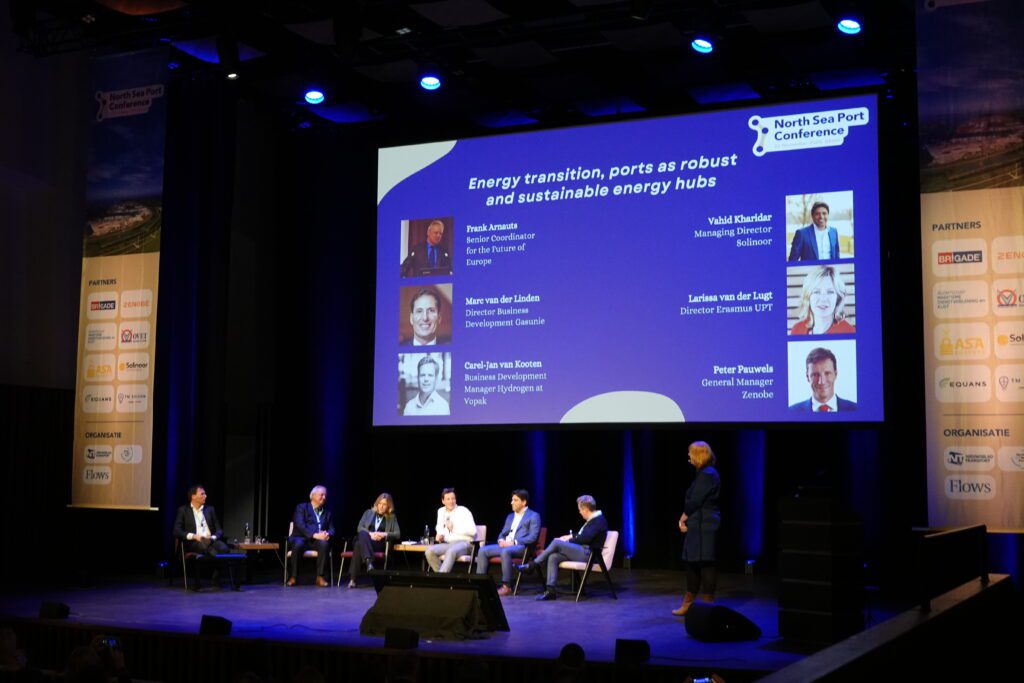
“More regulation, not less”
It was a little unusual to hear business leaders calling for more regulation, not less. But the message was repeated several times during the conference. What for? To ensure the success of the energy transition. Dick Gilhuis (Danser Group) said it best: regulation must help bridge the price gap between fossil fuels and hydrogen. Otherwise,” he said, “investment will dry up quickly. But there was also room for optimism. Peter Pauwels (Zenobe) and Vahid Kharidar (Solinoor) agreed that companies should “just do it”. Although Vahid Kharidar warned that the lack of sufficient network capacity is holding them back. Professor Larissa Van der Lugt (Erasmus UPT) was less optimistic. “The economics don’t work because of the huge cost gap with fossil fuels.” While she supported the Emissions Trading Scheme (ETS), she regretted that it was 20 years too late. “The price of carbon has to be much higher,” she said.
Mid-sized ports need to co-operate
Daan Schalck (North Sea Port) invited three CEO-colleagues from other medium-sized European ports to the stage: José Maria Gómez Fuster (Port of Cartagena, Spain), Zeno D’agostino (Port of Triëste, Italy) and Ansis Zeltiņš (Port of Riga, Latvia). The port directors agreed that industry should remain active in their ports. “For this to happen, energy transition, climate adaptation and the development of the circular economy must go hand in hand,” said Daan Schalck. Ansis Zeltiņš agreed: “Handling and reusing materials in a circular economy will make ports more competitive”.
José Maria Gómez Fuster said that the port scan was helping companies make the transition, while Zeno D’agostino pointed to the crucial importance of building a more robust infrastructure in terms of a stronger electricity grid and the new hydrogen networks.
Energy transition, climate adaptation and the development of the circular economy must go hand in hand.”
– Daan Schalck
“We are in a perfect storm,” said Daan Schalck. He referred to the recent floods and electricity shortages.
“We need more common goals, between companies, ports and politicians”.
Professor Theo Notteboom (University of Ghent and Antwerp) also called for more cooperation and synchronisation in his closing remarks. “There is a great desire for stability in a context of polycrisis,” he noted. “A lot of good things are already happening, but more synchronisation is needed. It is vital for ports to find ways to work together”.
